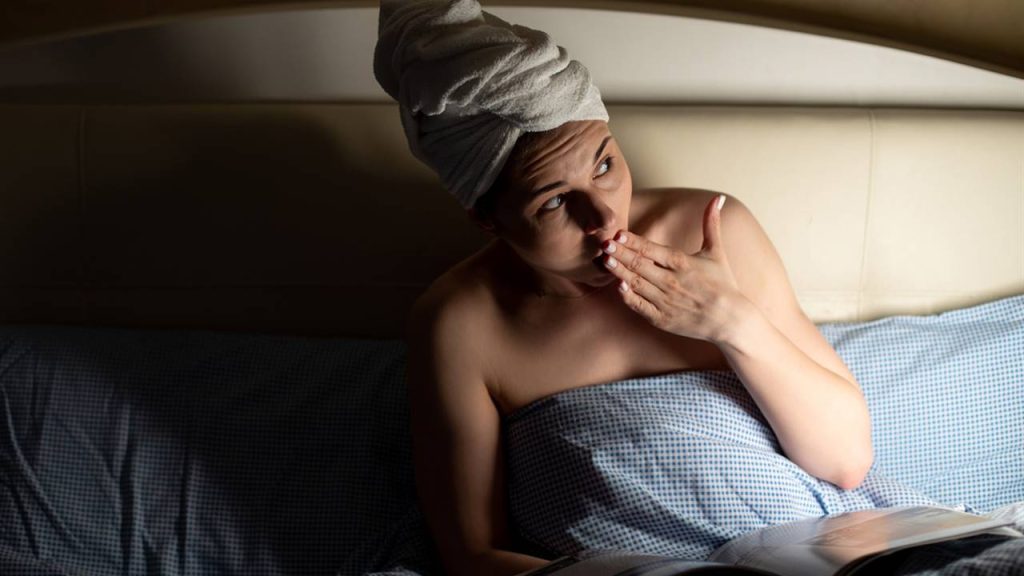Going to sleep with wet hair can have a negative impact on your hair and your health, but not in the way you might think.

After a hard day, many just want to get home, get in the shower, and then fall straight into bed and not get up until the next morning the alarm goes off.
If you wash your hair before, there is hardly enough time to air dry it. You may also not feel like using the dryer or want to do without it for ecological or energy-saving reasons.
But going to bed with wet hair can have negative consequences, although the myth that the cold is virtually guaranteed is not true.
DOES GOING TO SLEEP WITH WET HAIR MAKE YOU SICK?
One of the phrases of popular wisdom that you have surely heard often as a child is that you should always dry your hair with a hairdryer before going to bed. Otherwise, there would be a risk of catching a cold, as you start to catch the cold faster. However, this claim is not scientifically substantiated.
Colds don’t happen because people have or experience cold, they only develop when a virus has been contracted. These viruses spread through airborne droplets and on surfaces we touch when an infected person sneezes, coughs, or talks.
However, you can get a disease from sleeping with wet hair: a fungal infection on the scalp. Mushrooms find an ideal breeding ground on a damp scalp and an equally damp pillow.
On the one hand, they can be fungi that are naturally found on the scalp, such as the Malassezia fungus that can lead to dandruff and dermatitis, a skin condition.
In addition, there are other fungi, which also thrive in the hot and humid environment, which can cause serious infections in immunocompromised people and aggravate asthma symptoms. It is therefore advisable to sleep with dry hair.
SLEEPING WITH WET HAIR, WHAT DOES IT DO TO YOUR HAIR?
You’re also doing your hair a disservice if you don’t dry it out before bed. The reason is that hair is more fragile when wet. If you go to sleep with wet hair and roll over while sleeping, your hair is much more likely to break than when it’s dry.
There are also people who usually braid or tie wet hair during the night; This is another practice that can cause hair breakage.
The amount of stress your hair undergoes during the night also depends on how often you go to sleep with wet or undried hair.
Keep in mind that the individual nature of your hair plays a role. For example, chemically treated hair is more likely to break than untreated hair.
IF IN SPITE OF EVERYTHING YOU GO TO BED WITH WET HAIR
If you can’t avoid going to sleep with wet hair, the following tips can help you put as little pressure as possible on your hair and health:
- It prolongs the time that passes between washing your hair and going to bed, in this way, the hair can dry a little in the air.
- Use a conditioner, as it will help you seal the hair cuticle, reduce friction and facilitate hair detanglement. It will also help prevent hair breakage. There is evidence that coconut oil can help protect your hair against breakage.
- Make sure it’s not too cold in the bedroom. The ideal room temperature for sleeping is between 16 and 19 degrees. In a colder environment, hair takes longer to dry and bacteria have much longer to spread in the moist environment of the scalp and pillow.






